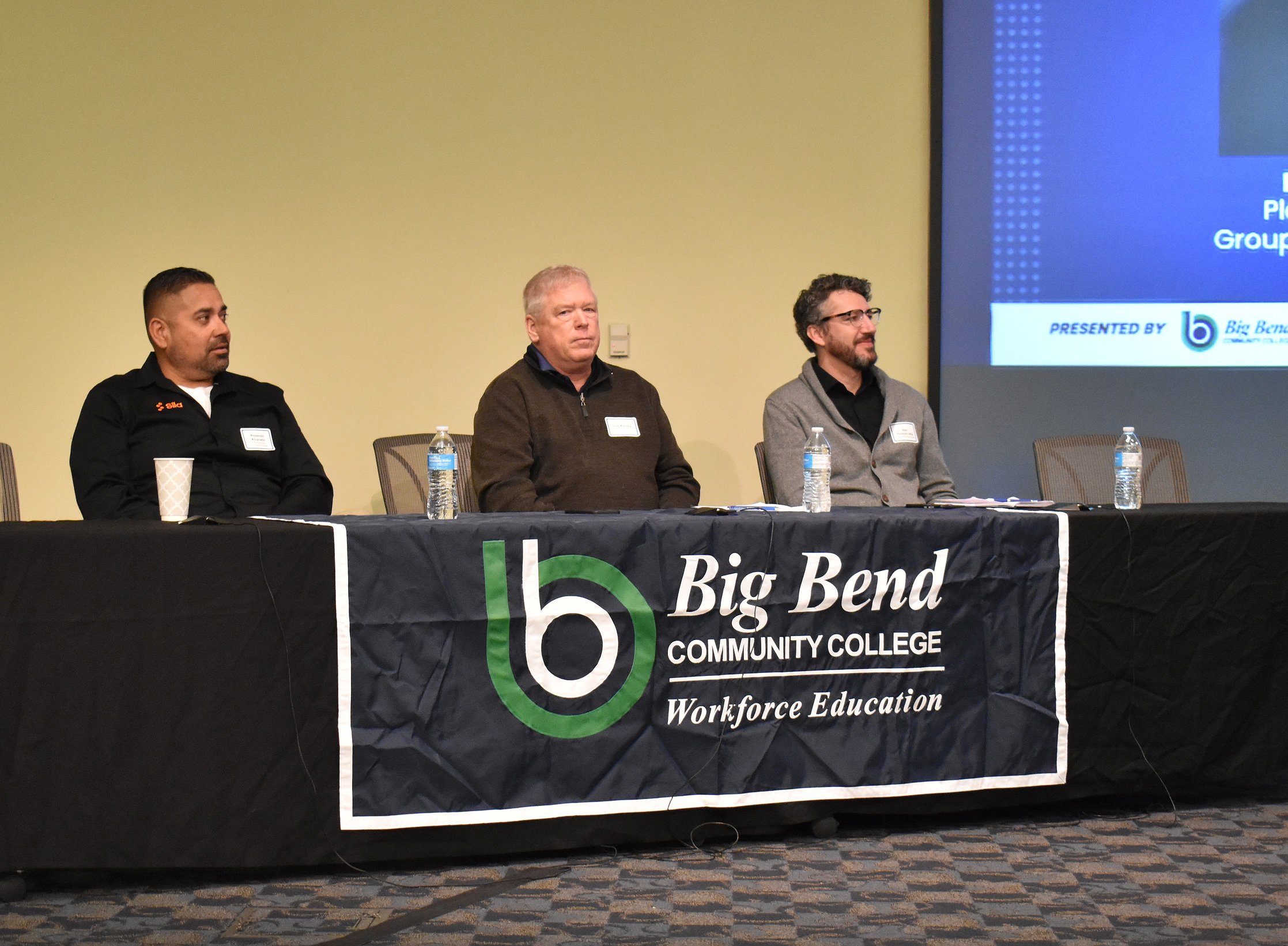BBCC clean energy conference highlights workforce needs
MOSES LAKE — Preparing a workforce for today’s clean energy industries was the focus of the Building the Future Energy Workforce Conference held at Big Bend Community College on April 11.
“We designed this as a way for us to showcase what Big Bend Community College has to offer in the way of flexible training and for folks to see their labs, and also as a way to introduce the battery manufacturing businesses to your local area and find out what is involved with this new emerging technology that's so important,” said Monica Brummer, director of the Pacific Northwest Center of Excellence for Clean Energy and one of the organizers of the conference.
The event was attended by about 110 people from the local community, according to BBCC Center for Business and Industry Services Director Beth Laszlo, who organized the BBCC side of the event along with Dean of Workforce Education Daneen Berry-Guerin. There was a panel discussion on the clean energy industry’s workforce needs with representatives from Sila Nanotechnologies and Group14, two of the electric vehicle manufacturers that are setting up production in Moses Lake; another on workforce development with Berry-Guerin, the Columbia Basin Technical Skills Center, Apple STEM Network, the North Central Washington Tech Alliance SkillSource and the state Employment Security Department; and a legislative panel with Reps. Alex Ybarra, R-Quincy and Vandana Slatter, D-Bellevue and Grant County Economic Development Council Director Brant Mayo.
“We had people from almost every industry sector: public education, the health care system, manufacturers,” said Laszlo. “We had city representatives, we had county representatives, our legislators were there … But the most exciting part was that we had people who were wanting to get a job. One of the teachers of our Adult Basic Ed program brought her class, so that class could hear what are the employers looking for, and how can they be prepared to get a job with these really fantastic new employers in town?”
The keynote speaker, University of Washington Clean Energy Institute Director Daniel T. Schwartz, gave an example of the speed with which the clean energy industry is evolving in the person of a UW chemical engineering student who started a battery testing company before he graduated in 2018.
“And then in 2020, they were acquired by Tesla,” Schmidt said. “In my 30-plus years (in the field), I've never seen a chemical engineering idea get tested at the small scale, and then be able to scale globally … And that is what we mean by accelerating the adoption of scalable clean energy: getting ideas out, getting them tested.”
“Manufacturing has changed. My grandma was an original Rosie the Riveter,” Brummer said. “(We’re) using a lot of automation … (but) we still need people to fix and fine-tune and make things better.”
Group14 is up to 100 employees, and looking to double that, said its plant manager Don Kersey.
“There's a big push to get that done,” he said. “It's tough to find the local people; we're aggressively going after them.”
Group14 has had to recruit from as far away as Texan and Louisiana, Kersey said, looking for people who have worked in oil refineries and developed the sort of skills needed in the EV battery industry.
Companies looking to set up in the area often meet ahead of time with BBCC, Laszlo said, to find out what the local workforce prospects are, and the college uses that to focus its educational efforts.
“The industries that come to our communities want to know that there are educational opportunities available, that those employees that they're going to need to hire will have access to excellent education,” she said. “It (gives) us a heads-up to start working in that sector, to think about what kinds of needs do they have? And how is that different from what we currently offer? And what do we need to tweak? All that work has been done for years, but we now have the opportunity, especially with new clean energy sector (groups) coming, to be able to demonstrate it clearly.”
“(Technology is being developed) that is cleaner, more sustainable and considers not just our immediate needs of this moment, but our nation’s and our world’s needs,” said BBCC President Sara Thompson Tweedy. “And we are here to learn how we can join together to meet the needs of this emerging industry that is developing right before our eyes here in Moses Lake … and at Big Bend Community College, we are preparing people to have the skills they need to be an integral part of this.”
Joel Martin may be reached via email at [email protected].



